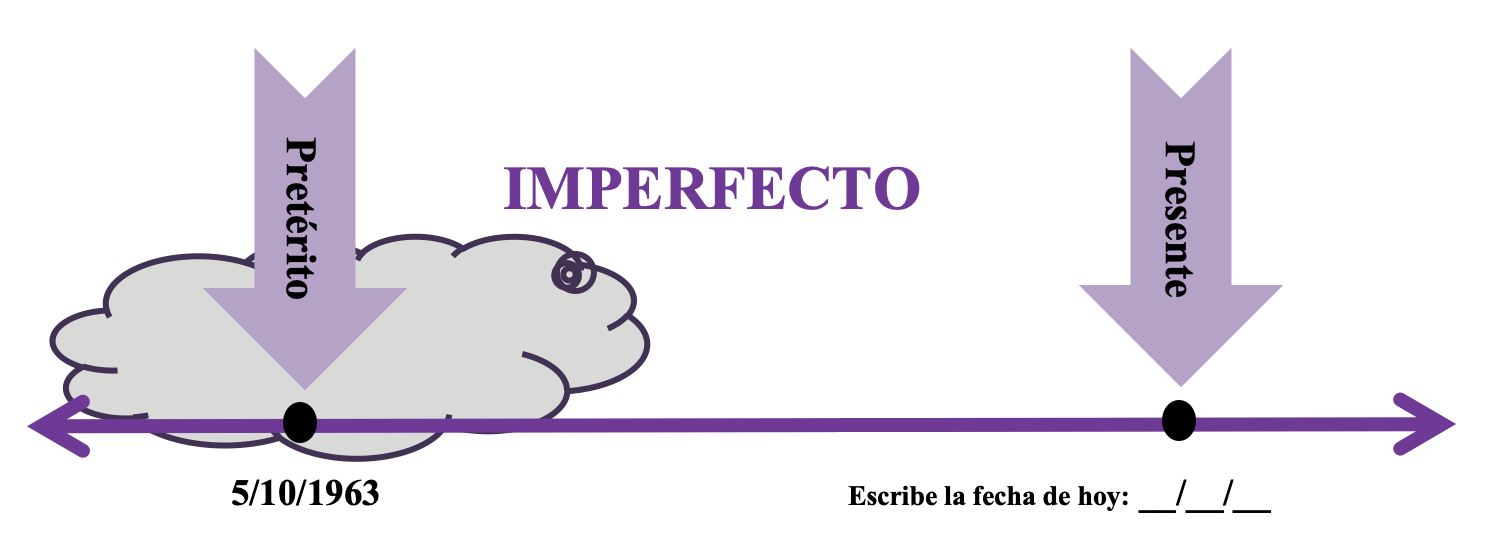Unidad 4: Estudiando en el extranjero
10. Resumiendo los tiempos pasados en el modo indicativo: Pretérito e imperfecto
All languages have challenges. As you remember from learning to use ser/estar or conocer/saber it was confusing at the beginning because there may not be a difference or a close translation in English. Now you know the nuances and it is not so hard, but still you need to think about it! The preterite and the imperfect tenses in the indicative mood are another challenge. You have some of the elements that help you use them in the correct way. We want to consolidate the information about the preterit vs imperfect to help you succeed in your Spanish communication.
En la siguiente gráfica se representa el presente, el pretérito y el imperfecto:

Pretérito: un momento específico en el tiempo: 5/10/1963
Imperfecto: un periodo de tiempo no definidio, cuando era niña…
Presente: un momento específico… el día de hoy

Con esto en mente, mira el video 2.4.9. Es un resumen el pretérito versus el imperfecto en el modo indicativo. Al mismo tiempo que ves el video completa el siguiente cuadro. Recuerda que puedes parar el video cada vez que necesites.

Pretérito vs. Imperfecto – palabras claves
Pretérito = Precise  |
Imperfecto  |
|---|---|
| Ayer = yesterday | Siempre = always |
TAREA: On the on-line platform you will find a multi-page practice packet called Manual-practice packet- Preterit vs Imperfect that you must print and bring to class each day. We will work on various parts of the packet in class with partners.
| Imperfect | Preterite |
|---|---|
| What was happening… | What happened |
| Repeated action | Single event |
| Mental activity | Physical action |
| Process | Beginnings/Endings |
| Action being interrupted* | Interrupted action* |
| Time in the past | |
| Physical description |

An interrupted action is a concept frequently used to teach preterit vs imperfect, but it is better to say that it is an action that happened at the time that another action was happening.

¡Terminaste la Unidad ٤!
Tú puedes…
Cuando estudiaba, saqué buenas notas.
Estudiaba à verbo en imperfecto, when I used to study.
Saqué à verbo en pretérito, the action happened.
This action is not interrupting; it just happened!

